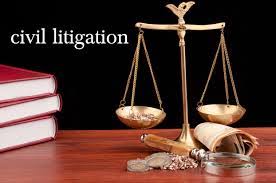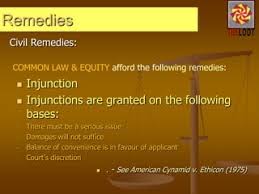


Empowering Consumers: Must-Know Legal Remedies That Protect Nigerians from Exploitation
Introduction
Available Remedies In Civil Litigation;
Civil litigation in Nigeria encompasses a range of disputes between individuals, businesses, or government entities, where the aggrieved party seeks a legal remedy for an alleged wrong. The remedies available are primarily aimed at compensating the injured party, enforcing rights, or preventing further harm. Here, we delve into the common legal remedies in Nigerian civil litigation and explore their implications.
In an increasingly complex and competitive marketplace, the importance of robust consumer protection frameworks cannot be overstated. From misleading advertisements and defective products to fraudulent business practices and breaches of contract, consumers in Nigeria face numerous challenges in asserting and protecting their rights. The legal landscape, however, provides a structured path for redress through civil litigation. This avenue is designed not only to compensate the injured but also to deter unfair practices, thus fostering trust in the Nigerian commercial and legal environment.
At its core, consumer protection is about ensuring fairness, transparency, and accountability in the relationship between businesses and the general public. In Nigeria, this responsibility is shared between regulatory bodies, such as the Federal Competition and Consumer Protection Commission (FCCPC), and the judiciary, which interprets and enforces legal rights through civil litigation. While regulatory bodies may intervene proactively, civil litigation remains a cornerstone in the enforcement of consumer rights when disputes arise.
Civil litigation offers consumers several remedies under Nigerian law. These remedies serve distinct purposes—some are compensatory, others are preventive or punitive. Among the most common are damages (monetary compensation), injunctions (court orders to cease harmful conduct), rescission (cancellation of unfair contracts), and specific performance (compelling fulfillment of contractual obligations). These remedies empower consumers to challenge and rectify wrongs in a system designed to uphold justice and equity.
The significance of consumer protection through legal remedies in civil litigation is even more profound given Nigeria’s vast population and growing middle class. As consumers increasingly engage in digital transactions and cross-border commerce, new legal issues emerge—ranging from e-commerce fraud to data privacy violations. Fortunately, Nigerian courts have shown a willingness to interpret consumer laws liberally, often in favor of the aggrieved party, provided that evidence supports the claim.
However, accessing these legal remedies is not without its challenges. The average Nigerian consumer may face obstacles such as high legal costs, procedural complexity, delays in court processes, and a lack of awareness of available rights and options. To bridge this gap, legal literacy campaigns, public interest litigation, and alternative dispute resolution mechanisms are being promoted as tools for accessible justice.
Moreover, Nigeria’s judiciary has evolved significantly in its approach to consumer disputes. Increasingly, judges are emphasizing not just the letter of the law but also the spirit of equity and consumer welfare. Cases involving defective products, breach of warranty, unconscionable terms in service agreements, and violations of statutory duties have received judicial attention, often resulting in precedent-setting judgments.
Equally important is the role of legal practitioners in advocating for consumers. Lawyers, NGOs, and civil society organizations serve as catalysts for justice, guiding complainants through litigation processes and advocating reforms that strengthen consumer protection frameworks. Through strategic litigation and advocacy, these actors are reshaping how Nigerian civil law responds to commercial malpractices.
Another emerging development is the role of technology in consumer litigation. With digital evidence becoming increasingly relevant, courts are now considering online contracts, electronic communications, and data breaches in their adjudication. This not only expands the scope of remedies but also aligns Nigeria’s legal system with global best practices.
In sum, consumer protection in Nigeria is no longer a passive concept; it is an evolving, active field supported by legal remedies under civil litigation. By invoking their rights through the courts, consumers can hold businesses accountable and shape a fairer commercial landscape. This article explores the common legal remedies available under Nigerian civil litigation and offers insights into how consumers can utilize them effectively to seek justice.
1. Damages
Damages are the most prevalent remedy in civil litigation, serving to compensate the aggrieved party for losses suffered due to the defendant’s wrongful conduct. Damages can be categorized into compensatory, punitive, nominal, and special damages, each tailored to the specific nature of the loss.
2. Specific Performance
Specific performance is an equitable remedy compelling a party to fulfill their contractual obligations. This remedy is commonly used in contract disputes where monetary compensation is inadequate, such as in property transactions.
3. Injunctions
Injunctions are court orders that either prohibit a party from taking a particular action (prohibitory injunction) or compel them to act in a certain way (mandatory injunction). These remedies are crucial in cases involving property disputes, intellectual property rights, or breaches of fiduciary duty.
4. Declaratory Reliefs
Declaratory reliefs involve a court declaring the rights, duties, or obligations of the parties without awarding damages or directing any action. This remedy is commonly sought to resolve legal ambiguities in contracts, property rights, or constitutional matters.
5. Restitution
Restitution aims to restore the injured party to their original position before the wrongdoing occurred. This remedy is often pursued in cases involving unjust enrichment, where one party has been wrongfully benefited at the expense of another.
6. Rescission
Rescission is a remedy that nullifies a contract, returning both parties to their pre-contractual positions. It is commonly used in cases of misrepresentation, undue influence, fraud, or mistake.
7. Rectification
Rectification allows for the correction of errors in a written contract to reflect the true intention of the parties. This remedy is typically sought when there is a clerical or drafting mistake that distorts the contractual agreement.
8. Account of Profits
This remedy requires the wrongdoer to surrender any profits made as a result of their wrongful actions. It is often used in cases of breach of fiduciary duty, intellectual property infringement, or partnership disputes.
9. Attachment Orders
Attachment orders allow a claimant to seize the defendant’s assets before or after obtaining a judgment to secure payment. This remedy is particularly useful in debt recovery and enforcement proceedings.
10. Orders for Possession
Orders for possession are used to recover property unlawfully occupied or held by another party. This remedy is common in landlord-tenant disputes and other property-related matters.
11. Anton Piller Orders
Anton Piller orders allow for the search and seizure of evidence without prior notice to the defendant. This remedy is vital in cases involving intellectual property infringement or other situations where evidence may be destroyed.
12. Mareva Injunctions (Freezing Orders)
Mareva injunctions prevent a defendant from disposing of or dissipating assets before the resolution of a case. This remedy is particularly useful in cases where there is a risk that the defendant may remove assets from the court’s jurisdiction.
13. Garnishee Proceedings
Garnishee proceedings allow a claimant to collect debts directly from a third party who owes money to the defendant, such as a bank. This remedy is commonly used in enforcement of judgment debts.
14. Writ of Mandamus
A writ of mandamus compels a public officer or government entity to perform a public duty they are legally obligated to carry out. It is often used in administrative law disputes involving the refusal or failure of a government agency to act.
15. Interpleader Orders
Interpleader orders are issued when a third party holds property or money subject to competing claims. The court decides the rightful claimant, protecting the holder from liability.
Conclusion
The legal remedies available in Nigerian civil litigation are vital tools for upholding justice, protecting rights, and maintaining the rule of law. Each remedy serves a specific purpose, whether it is to compensate for losses, enforce contracts, or prevent further harm. By understanding the nuances of these remedies—ranging from damages and specific performance to injunctions and restitution—litigants and legal practitioners can better navigate the complexities of the judicial process.
These remedies not only provide redress to aggrieved parties but also act as a deterrent against wrongful conduct. Their strategic application in disputes reflects the adaptability and depth of Nigerian civil law, ensuring that justice is tailored to meet the unique circumstances of each case. As the legal landscape evolves, staying informed about these remedies remains essential for achieving favorable outcomes in civil litigation.
Consumer protection is not just a legal mandate—it is a social imperative that reflects a nation’s commitment to fairness, justice, and the dignity of its people. In Nigeria, civil litigation serves as a powerful instrument for enforcing consumer rights and addressing violations that may otherwise go unchallenged. Through this system, aggrieved individuals are not left to suffer in silence but are equipped with an arsenal of legal remedies designed to right wrongs and discourage corporate malfeasance.
The remedies available in Nigerian civil litigation, such as damages, injunctions, rescission, and specific performance, offer both retrospective relief and prospective deterrence. When a court awards damages, it compensates for losses suffered, reinforcing the idea that consumer harm carries consequences. Injunctions prevent ongoing or future harm, while rescission and specific performance directly alter the terms or outcomes of unfair transactions. Collectively, these remedies ensure that justice is not merely symbolic but actionable and impactful.
A key takeaway from the exploration of these remedies is the emphasis on accessibility. While the Nigerian civil justice system is well-established, its effectiveness hinges on the ability of consumers to navigate it. That means improving legal awareness, reducing litigation costs, and expediting court procedures must remain top priorities. Government, legal institutions, and civil society must work collaboratively to make legal protection genuinely accessible to every Nigerian, regardless of socioeconomic status.
Equally important is the judiciary’s evolving attitude toward consumer cases. There is a growing judicial recognition that consumers often represent the weaker party in commercial transactions. This has led to a more protective stance by courts, which are increasingly inclined to interpret ambiguous terms in favor of the consumer and to penalize exploitative practices. Such judicial activism is essential in promoting equitable outcomes and deterring systemic abuse.
In tandem with this evolution is the role of advocacy. NGOs, legal clinics, and advocacy groups have made significant strides in educating consumers about their rights and providing free or subsidized legal services. Their contributions underscore the fact that consumer protection is not just about legal statutes—it is about empowering individuals to speak up, take action, and shape the system through civic participation.
As Nigeria’s commercial landscape continues to evolve—with the rapid growth of fintech, e-commerce, and digital platforms—new consumer protection challenges will inevitably arise. Data privacy, algorithmic bias, and deceptive digital marketing are already areas of concern. The civil litigation framework must adapt accordingly, ensuring that legal remedies remain relevant and responsive to contemporary threats.
The integration of technology into litigation processes is a promising development in this regard. E-filing, virtual court proceedings, and the admissibility of electronic evidence have the potential to streamline justice delivery and reduce the barriers to redress. These technological advancements, coupled with ongoing judicial reforms, hold the promise of a more efficient and consumer-friendly legal system.
Ultimately, consumer protection is a continuous journey—one that demands vigilance, innovation, and collaboration. Legal remedies are essential tools on this journey, offering consumers not just the means to obtain justice but also the power to demand accountability. By leveraging these remedies within the framework of Nigerian civil litigation, consumers contribute to a fairer, more transparent economy.
For businesses, this should be seen not as a threat but as a call to higher standards. Compliance with consumer protection laws, fair pricing, transparent communication, and swift resolution of complaints are all hallmarks of a sustainable business model. As more consumers assert their rights and more judgments reinforce those rights, a new commercial culture can emerge—one rooted in respect, integrity, and mutual trust.
In closing, Nigerian consumers have a powerful ally in civil litigation. While the path to justice may have its challenges, the availability of clear, enforceable remedies ensures that wrongdoers can be held accountable and victims can find redress. By understanding and utilizing these legal tools, consumers not only protect themselves but also help shape a more equitable and just society.
. Damages
. Specific Performance
. Injunctions
. Declaratory Reliefs
. Restitution
. Rescission
. Rectification
. Account of Profits
. Attachment Orders
. Orders for Possession
. Anton Piller Orders
. Mareva Injunctions
. Garnishee Proceedings
. Writ of Mandamus
. Interpleader Orders
Contact Us
Chaman Law Firm today. Our offices are conveniently located in Lagos, FCT Abuja, Ogun State, and the UK. We are readily available to assist you with your legal needs. Whether you require consultation, representation, or ongoing legal support, Chaman Law Firm is your trusted partner.
Call us at 08065553671 or email us at info@chamanlawfirm.com to schedule a consultation.


